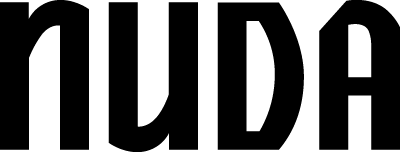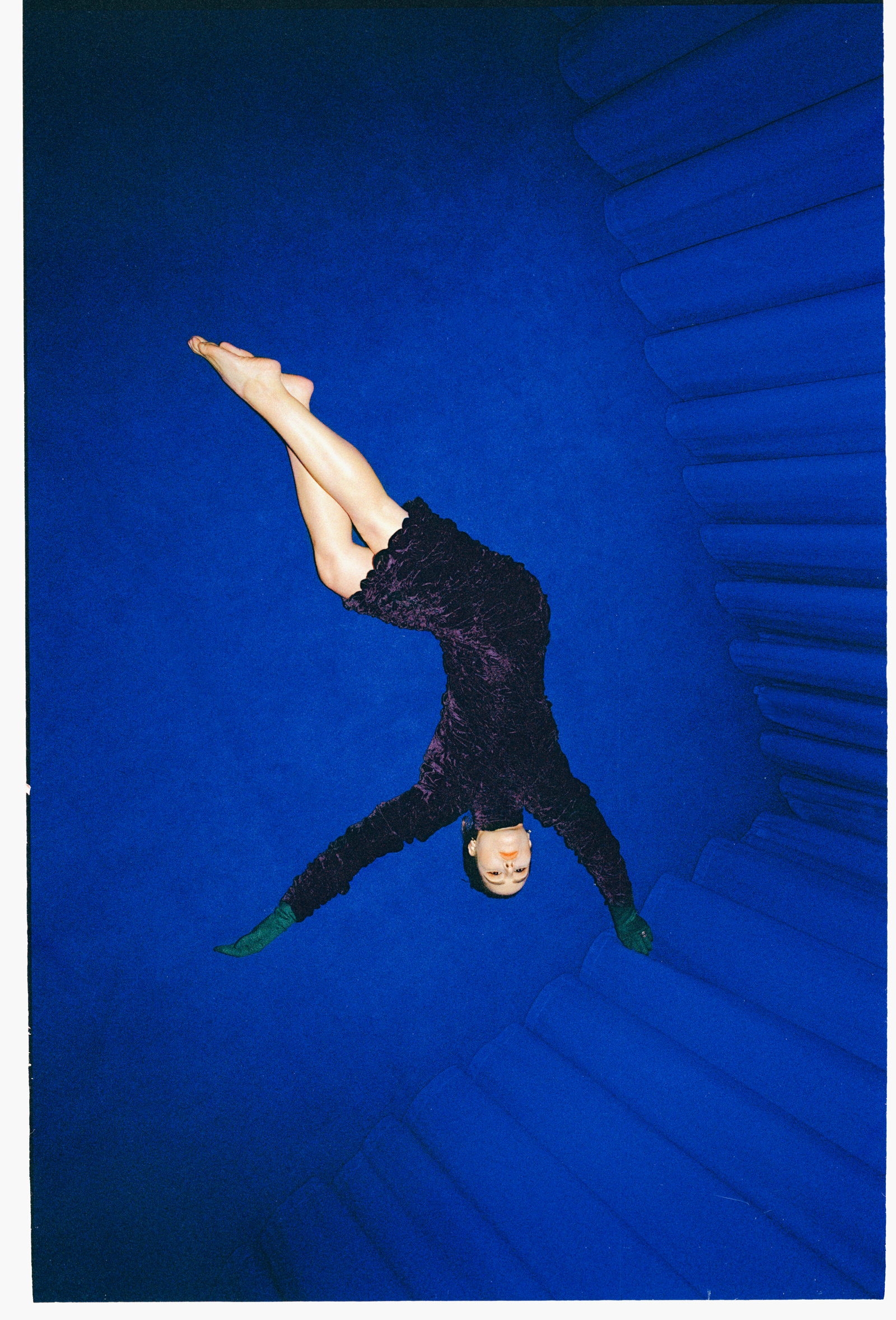On the animal in all of us
Published in Nuda:Terra
Icelandic poet, novelist, and lyricist Sjón and Swedish actress and producer Noomi Rapace join NUDA for a discussion on the complexity of the human species and its most salient features. Oscar-nominated for the lyrics of I’ve Seen It All in Lars von Trier’s Dancer in the Dark, Sjón is the author of over 30 works, translated into 35 languages, ranging from novels to stage pieces as well as poems. Most recently he wrote, together with the director Robert Eggers, the script for The Northman. Following her acclaimed portrayal of Lisbeth Salander in the Millennium series — which was worth the Guldbagge Award and a nomination for Best Actress at the BAFTA Award — Rapace reached the global audience starring in films such as Sherlock Holmes: A Game of Shadows, Prometheus, and The Drop.
Drawing from memories of their Icelandic childhood and recent experiences with their surroundings, Sjón and Rapace highlight the meaningful influence that an innate connection with nature has had on how they think of life. As they investigate the links between human evolution and climate change, the conversation rapidly turns into a call to action to denounce the abuses inflicted on the most fragile, animals and humans alike. From the necessity to take control of our competitiveness to the disillusionment with today’s materialistic system, the two pinpoint the perks and flaws of what being human entails while stressing the urge to go back to our most genuine essence.
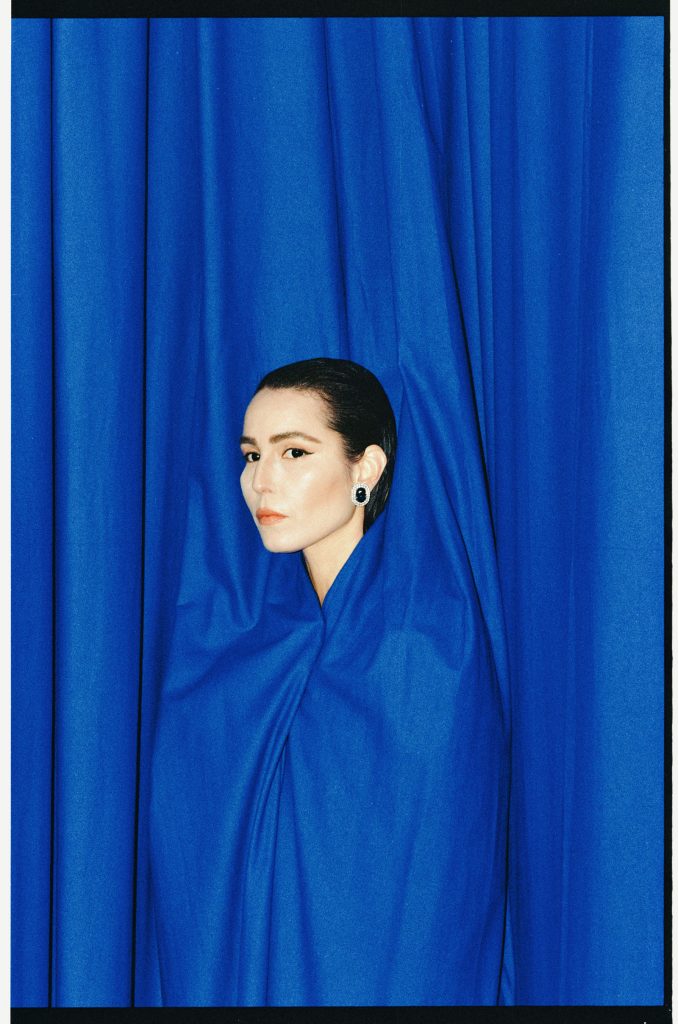
NR: As humans, we are used to thinking that we are above other species and, therefore, we act as if we were the queens and kings of the planet. We believe that the earth belongs to us, meaning that nature and animals are subjected to our power. We assume that everything is ours to take and possess. It has been like that for too long and now the Earth is angry. Look at what’s happening in California, where wildfires are taking over entire cities. The planet cannot take it any longer, I can feel that. Especially in countries like Iceland, where nature is so powerful that you can truly feel its energy while immersing yourself in it. For you, Sjón, having grown up there, as well as I, having lived parts of my childhood in Iceland, it is easy to realize how nature represents a deeply rooted aspect of our lives.
Sjón: Absolutely. As you said, people assume that everything that exists on the Earth is ours. The big lesson that we are learning in our times is that the climate emergency is definitely a Frankenstein monster created and provoked by ourselves. We live in times where we see and witness the entity of such an emergency daily as it takes different forms. We have no control over this, yet, the humility that we need to show simply isn’t there; it is incredibly hard to convince people to pursue a more sustainable way of living.
… the Earth is angry
NR: I think this has something to do with the way in which you value success and happiness and how power is measured. Today, we’re so obsessed with strength. We always feel the necessity to have an impact on others; to be above others. We are constantly competing with ourselves as well as others to be able to rise above our current status. It’s all about getting better, getting richer, and gaining more than what we already have.
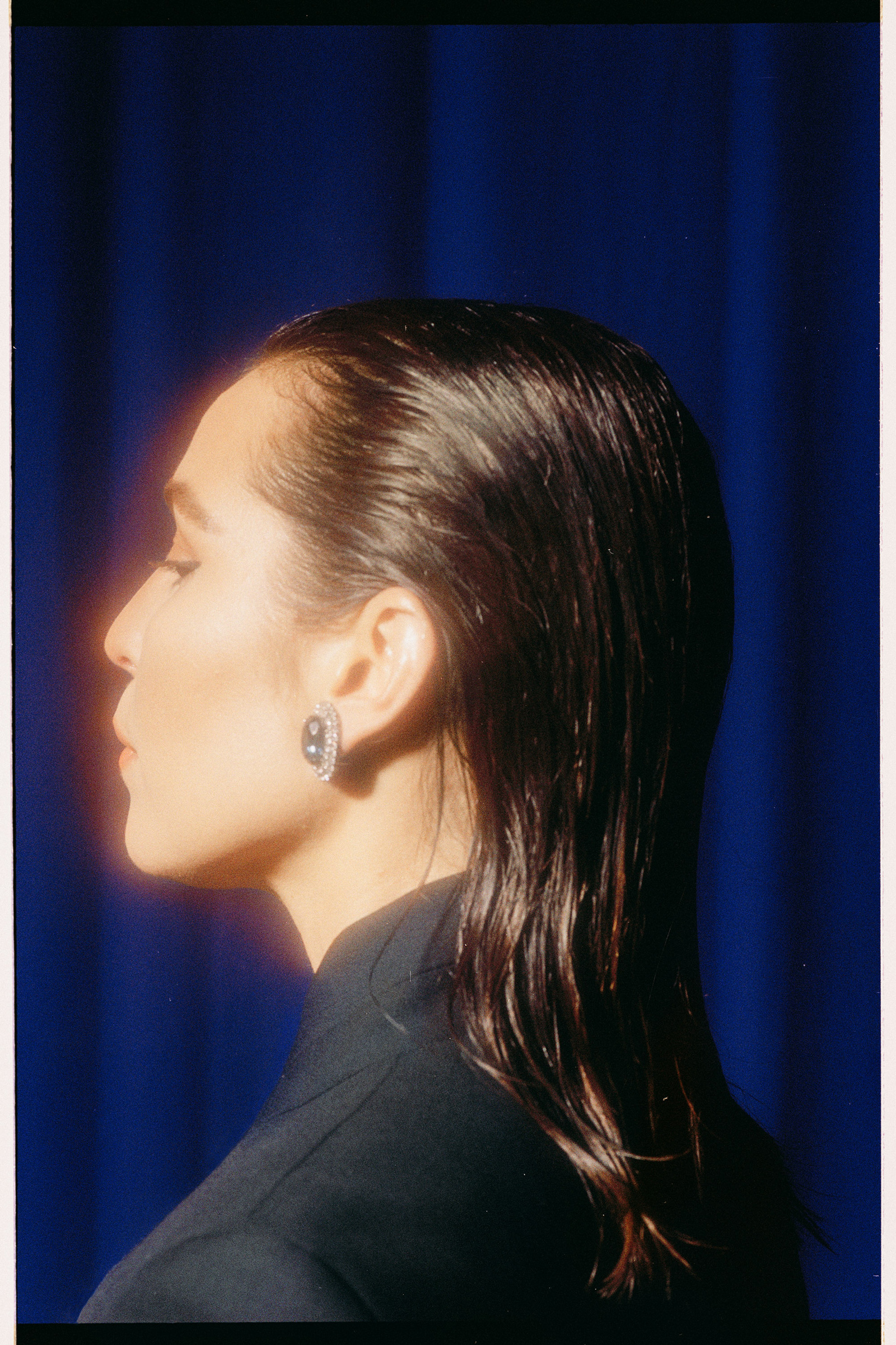
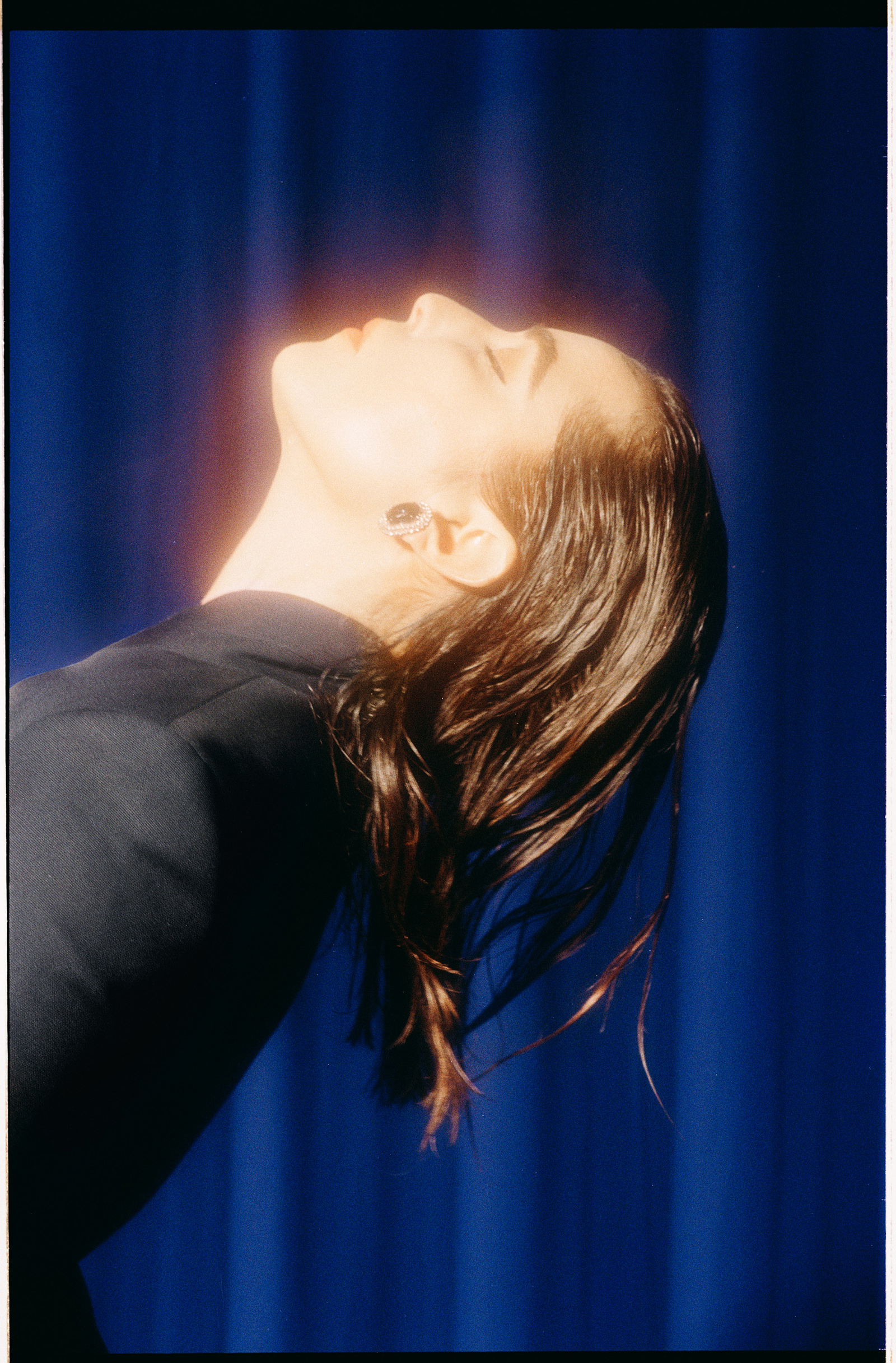
S: We are a strange species because, from the real beginning, we have used our skills and power to invent things. Unfortunately, we create both things of beauty and of destruction. Think of the very first human artifacts that were discovered, the Stone Age axes. The amazing thing about them is that they go beyond their functional aspect, they are more than mere objects. They were invented to serve as functional tools, to skin animals, for example, or kill them, or whatever; but they were also made with such care, that it is tangible that there is also some sort of beauty involved. Apparently, we have always been like that, we have always been creating beauty and destruction at the same time, we just can’t help ourselves.
But what comes to my mind mentioning the climate emergency is that the first to suffer — as always in violent times — are the most vulnerable ones. And who are the most vulnerable in this case? I mean, animals are dying out. We are extincting animals at such a fast rate that we can’t do anything but fall silent when we hear such numbers. Sadly, the next group to go will be the human beings that are living at the edge of the habitable world. I think that if we look back in history, at least here in Iceland, nature was often seen as a monster that wanted to devour us. Think of the sea and its power, the volcanoes, the earthquakes, the rivers, the horrible Icelandic winters. This was just one huge monster called “Nature” that was trying to get rid of us, to wipe us off the island, you know? Later, we learned that this sublime and magnificent monster could be beautiful too, but I think we didn’t have an understanding of nature as something to connect with until the Romantic era. Talking about roots and reconnecting with what is beneath the Earth, I think that the energy that you, Noomi, bring whenever you dance is just incredible. It looks like a demon came out from your body.
Climate emergency is definitely a Frankenstein monster created and provoked by ourselves
NR: You know my dad was Spanish, right? It’s so strange to even think about this whole journey while sitting here in Copenhagen and having this conversation with you. I am a half-Spanish, half-Swedish woman. I have never known my dad, so I always just stayed with my mom. When my mom met my stepdad — who’s an Icelandic man — we moved to Iceland. I was just four and a half or five years old. I must say that connecting with your country, Sjón, a country that truly embraced me as a child, changed everything for me. I still remember how my Icelandic grandmother went down on her knees when I first arrived there.
It was Christmas time, I was turning five, and she embraced me, taking me into a big, big hug, and said “Welcome home”. She just kept saying to everyone, “This is my firstborn grandchild,” but I was not even her blood. She truly adopted me and I feel like Iceland adopted me as well, in the sense that I immediately felt so connected with its nature. I was out playing all the time, I grew up in the wild, my soul was nursed by it. I got the minerals of the Icelandic lava stones into my blood system. I’m not sure whether the connection I made with you in that country came from me moving there when I was young, or if I have always had it. Still, I feel that the respect, fear, and love I have for the wilderness as well as all the creatures in between that — whether its animals, elves, ghosts, demons, or whatever we have — became a reality for me while filming this movie.
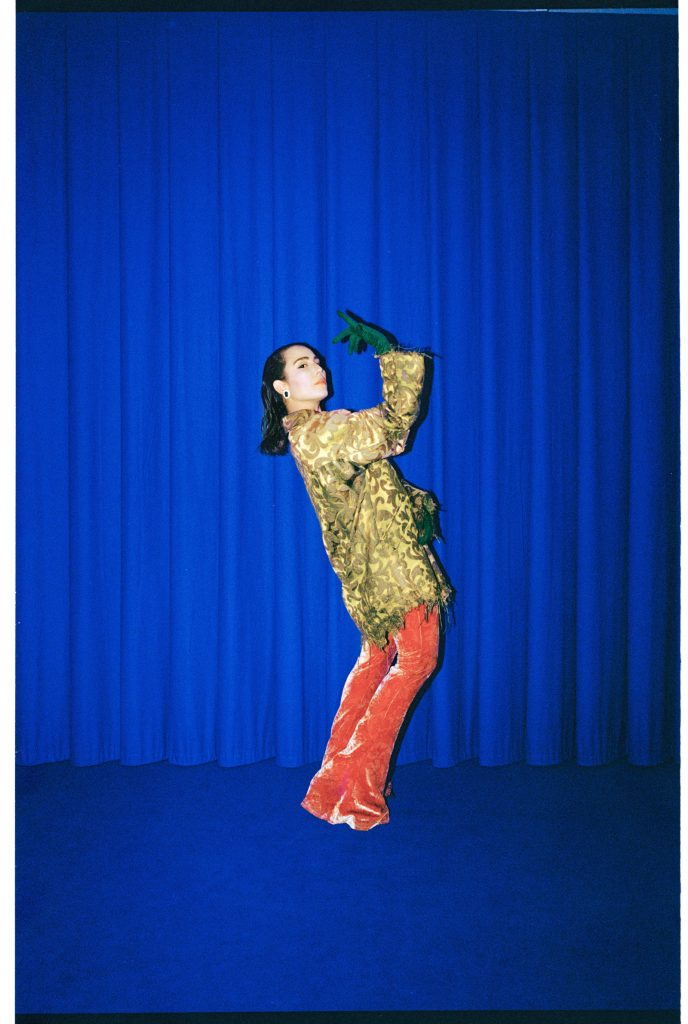
You were both saying that we, as humans, have put ourselves above other species, trying to distinguish ourselves from nature. I’m quite interested in this process of bridging nature and human beings because philosophy has always tried to define humans as something other than what nature is, as if we were not actually a part of it. To what extent would you say that we are still animals?
S: You know, nobody knows what happened to the animal that became human as we know it ourselves. William Burroughs, the American writer, proposed that we have been infected by a virus from outer space: that virus was the word, that virus was the invention of language.
NR: Oh, I did not know this!
S: Yeah, he said language is a virus from outer space because we went through a transformation that made us talking animals. We don’t know how much abstract thought other species have. There are hints that there are species that are capable of abstract thought just like we are, but we definitely know that we are a special case. Traditionally, it’s always been seen as a good thing to suppress the animal that is still present in us; to be as human as possible. But we are now living in times where we really need the animal in ourselves. We need that animal who understands the needs of the reality we live in to be able to survive in this world. This animal has to have a real, deeply rooted, and direct relationship with nature, not the abstract, constructed relationship that we have had over the last four hundred years.
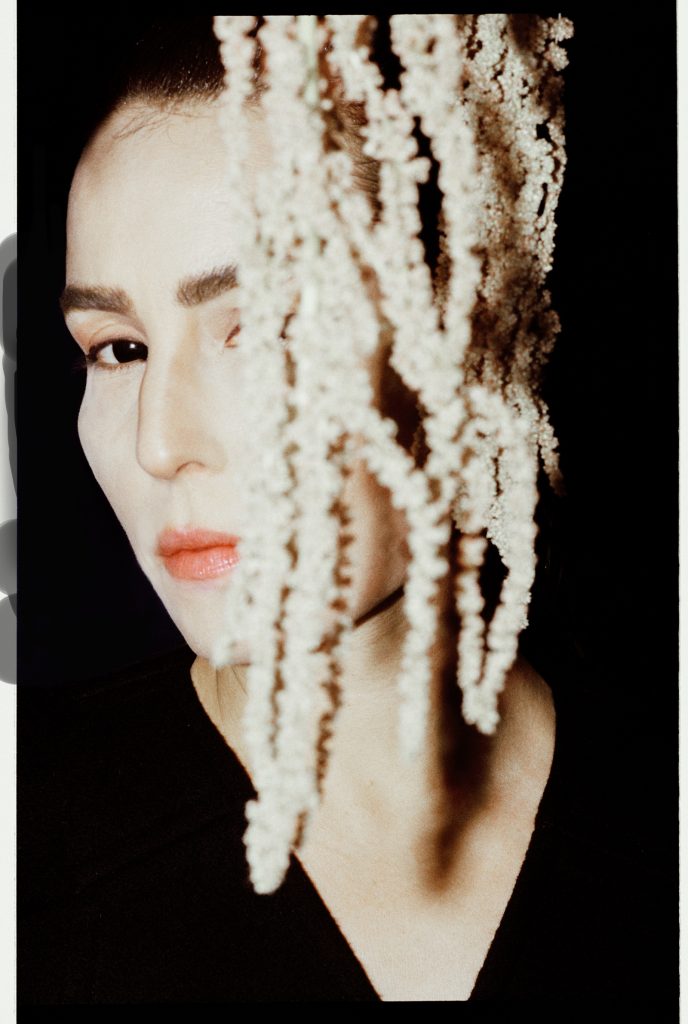
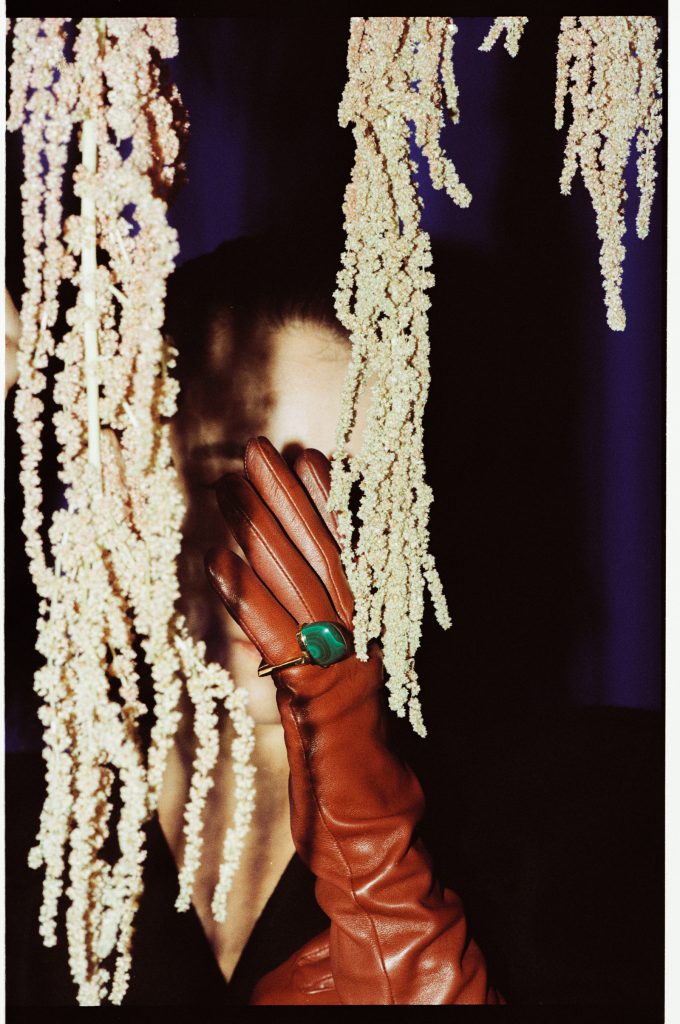
NR: I totally agree with you. I think that we have become incredibly disconnected from nature and from each other as humans, of course, some more than others. Because of the current pandemic, we’re so terrified by bacteria, the virus, and any surface that could be covered in it. It’s all about sanitizing, sanitizing, sanitizing! That’s something I am not quite used to having grown up on a farm surrounded by animals, mud, and horse shit. It was so dirty I cannot even describe it. I lived in a house where, when it was windy, there was sand coming in through the windows. There, I learned how to paint, build, and create, and I was very good at helping up in the stables. As a child, I was very grounded and strong, but I didn’t know how to read or write. So that outer space virus, as you called it, apparently didn’t hit me at first, it only came later.
When I was a kid, I was constantly told “Be strong! Come on, don’t whine!” you know, “It’s just some blood, it’s just some dirt.” I knew that if I thought about getting sick, I was going to be sick; but if I didn’t think about it, that could potentially help. I was aware of the correlation between psyche and body. I actively trained myself to become a strong person who doesn’t get affected by all these sorts of things. In nature, you have to be strong. My stepdad raised me almost like a horse, just like any other animal on our farm. “Only the strong survive,” and I was well aware of that. Throughout my childhood, I have always been very close to nature. I bet that’s why I can feel when I have been in a city for too long, even though sometimes I forget about how I was raised as a child. Still, my intuition is very primal and my sense of smell, for instance, is incredibly intense. The scent is probably one of the strongest memories I have kept from my childhood. I remember how people smelled, the breadth of one of my first boyfriends, the skin of one of my girlfriends. I guess that’s the animal that is still in me!
We have always been creating beauty and destruction at the same time, we just can’t help ourselves
What about you, Sjón? Do you still have an animal side?
S: One way of looking for the animal in yourself is to look at your persona as a social creature. In fact, the animals that we were before developing into human beings were very social. I think that a lot of the skills we have today come from the animal that we used to be, from the animal side of ourselves. Think of our ability to adapt to new contexts and situations, the ability to read the room, or the fact that we feel responsible for the hurt.
NR: We have that in common actually. I read bodies, and I can tell when someone’s words are not matching their body language. Only the body tells us the truth. Words can lie, but I can read people’s hands, or look at the way they sit, how they walk, or how they smell at any specific moment. I guess that’s something related to our animal nature, it is some sort of instinct, you know?
S: Yes, indeed, that’s the real animal behavior. Still, I find it quite strange that the climate emergency is not provoking the famous “flight or fight” responsiveness in us. One of the things that came to my mind when I was thinking about it a few years ago is that we think of ourselves as fundamentally mortal. We learn quite early on to live with the assumption that, at some point, we will die, but we learn to accept and live with this premise. Well, I started to wonder whether such acceptance could be a factor working against us within the climate emergency scenario. It feels as if part of the world population was saying “Oh, yes, we are all going to go anyway.” In that sense, we might have let go of that protection element that most species have, which is the one that helps animals preserve themselves and survive.
We have been infected by a virus from outer space: that virus was the word, that virus was the invention of language
NR: The problem is that, yes, today’s decision-makers are going to die, but they are not the ones that are going to be in real trouble. It is the coming generations that will have to suffer from their decisions. There’s only a limited amount of time, and our memory tends to be very short. We forget so quickly about things, especially when it comes to our mistakes, right? We have a hangover and say that we are never going to drink again, but then, the very next weekend, we’re back on it. Think of last year’s wildfires: they were also soon forgotten, and that’s exactly why it’s happening all over again now. We have this weird tendency to deny or ignore what we actually already know. We have all the science, the information, and the knowledge necessary to understand the gravity of the situation; yet, we still behave like cavemen sometimes.
S: Maybe, we are just at the mercy of evil powers, which are the greedy ones, the greedy 1% of the world. That’s also possible, I’ve sometimes thought that greed in our society is nothing less than a sickness. It is like a virus, and it is contagious. I look at people and think, “Why do you need more money? Why do you have to own every fish in the sea around Iceland? Why do you have to dominate the market?” It is like if people have gone over a certain barrier of richness from which there is no return. They will always try to get richer. So it is, in fact, like a mental sickness.
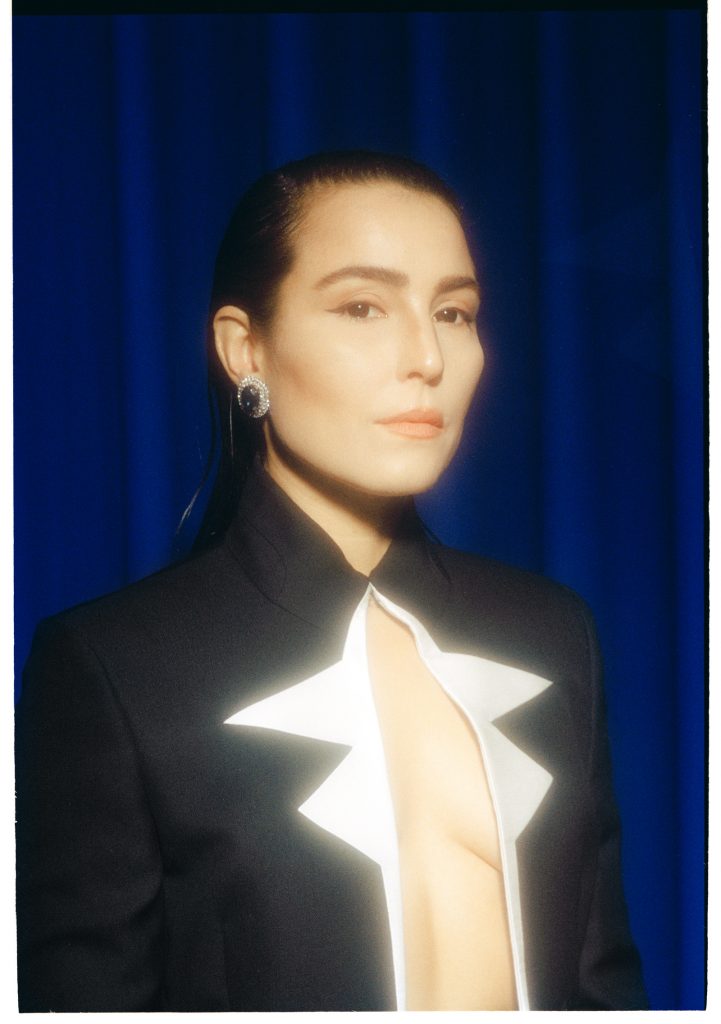
NR: People think of themselves as if they were the emperors of the world. Whenever you get high on yourself, it’s just as if you were your own drug and didn’t need anything else to feel that way. You’re totally addicted to yourself, you just need more and more of your own achievements and power in order to feel great. I also felt like that sometimes. I’ve been asking myself, “Are you greedy? What do you want? When are you happy?”
For me, greed is maybe not about the money, but it could be about other things as well. So, at times, I do need to pull myself back and be like, “Look at yourself.” I like to step out of myself for a moment and look at the person I’ve become. It’s almost like there’s a cameraman following myself and looking at myself from the above. How does this woman move in the world? How is she towards other people? How is she towards her family, her friends, or her man? How does she behave? These are some of the questions I would ask, and then I ask myself, “Would I like her? Would I respect her?” It’s a pretty good game, you should definitely give it a try.
S: Sure, I’m ready to play. Another thing is that if we are that social species who, before turning into human beings, was fundamentally good, maybe that’s also still part of us. Maybe there is a sort of disbelief that a small part of the human population can actually conspire against the rest of us, if you know what I mean? So if you think about the people who are running the big businesses around the world — who are the ones who are expected to change the way they think and operate — I think it’s very difficult for us to accept that these people don’t give a shit about the rest of us. That’s because it’s so deeply rooted in us that we should be taking care of each other, that looking at how international governments and corporations are failing us and the planet seems unacceptable. Still I am hopeful that the new generations will know how to come up with better solutions.
But we are now living in times where we really need the animal in ourselves
Being a young person today must be anything but easy, you know? I see it with my own kids. Think of the amount of information teenagers are exposed to every day, the quantity of fake news they have to deal with, or all the dramatic stories they become aware of because of their access to technology. When I was a kid, it wasn’t like that at all. Most children didn’t even know what was going on in the “big” world and, if they did, it was mostly thanks to what their parents had taught them about it, or because of what they had heard in school. Today, considering where the world is heading, it’s way easier for young people to be depressed than it was for my generation. Yet, these same kids are the ones hearing the wake-up call of the climate emergency. They are the ones taking the streets to claim a better future for the Earth and the international community as a whole.
NR: Yes, and that is magical. They are mobilizing themselves and, unlike the older generations, they can’t be bought. When you see them in action, there is no question of what values they stand for. They are so pure and sincerely sure about what they are doing and why they are doing it. I know I should be scared, depressed, and deeply worried, but weirdly enough, I have kept some hope. When I read the words written in your poems, in your books, in your scripts: that is hope for me, because what you write is never cynical. It speaks from a place of deep desire to investigate humankind, and that’s exactly what we should all be doing in these hard times.
***
Noomi Rapace is shot in artist Laleh Kazemi Veisari’s installation [Aabi] آبی, shown at Nuda’s space in Stockholm in August. The title refers to the Persian word [aabi], which translates to the color blue. It derives its meaning from an association with water, or being water-like. Embedded is a desire for the watery. [Aabi] آبی is a spatial exploration of the color blue. [Aabi] آبی is an inquiry into metaphoric spaces as sites for gathering and reflection. It is an attempt to create a common ground, inviting the audience to pause from the city, into the blue. [Aabi] آبی examines the break as potential, where interruption is understood as resistance.
On a clear day one finds the sky and ocean seamlessly blend together at the horizon. The reflecting surface of the water mirrors heaven’s bright blue color, and looking out from land, one is surrounded by blue as far as the eye can reach. Blue as a soft embrace by the atmosphere. Boundless blue, and yet, bound by blue. Blue as an abstraction of care and caress. How does blue set in motion our imaginary plane?
| Words | Gilda Bruno |
| Photographer | Frida Vega Salomonsson |
| Stylist | Siri Edit Andersson |
| Stylist assistant | Sheila Rahmani |
| Make | Kristina Kullenberg /LUNDLUND |
| Hair | Tony Lundström |
| Installation | Laleh Kazemi Veisari |
